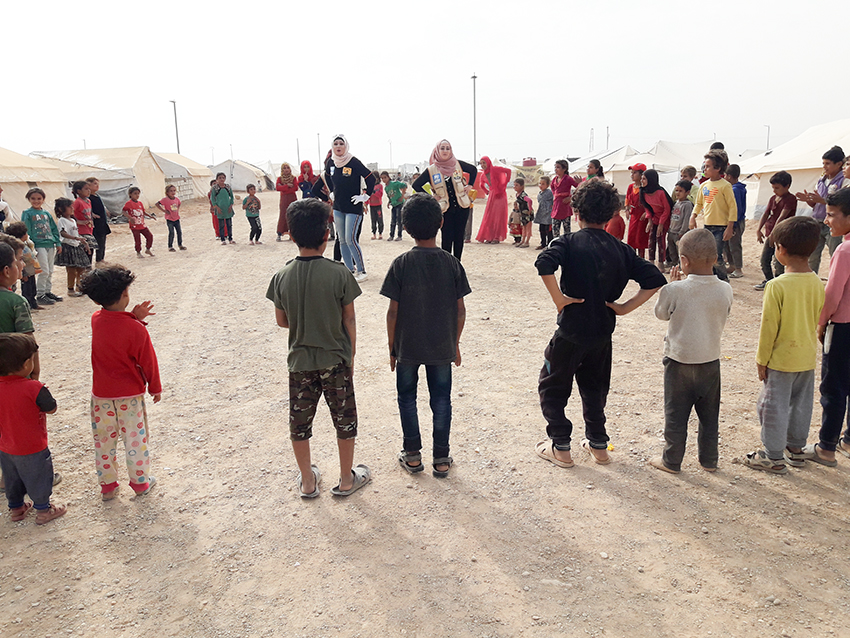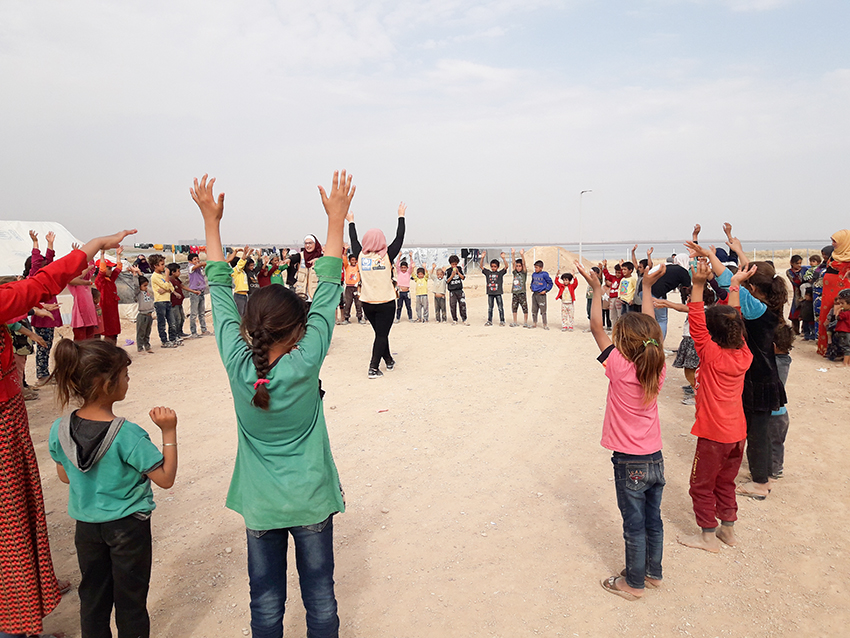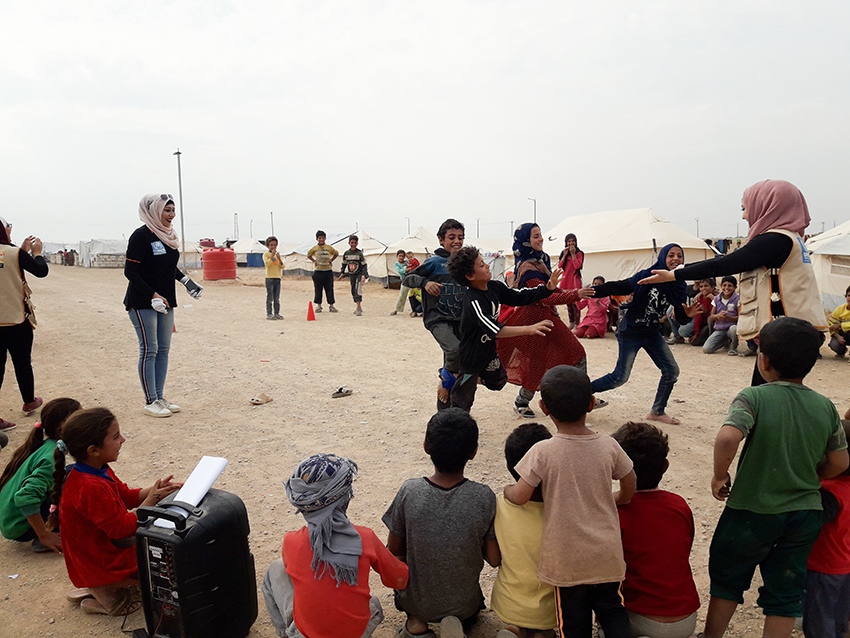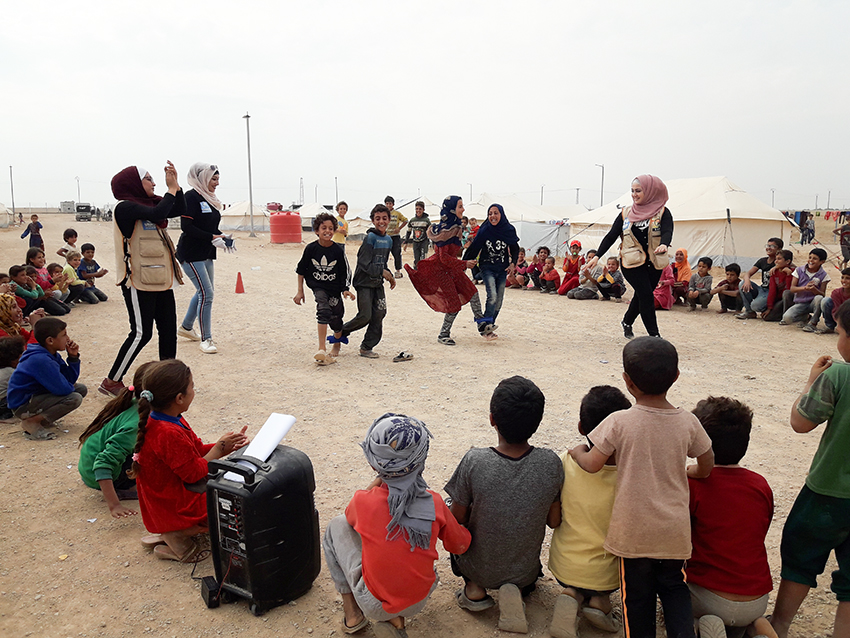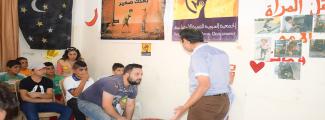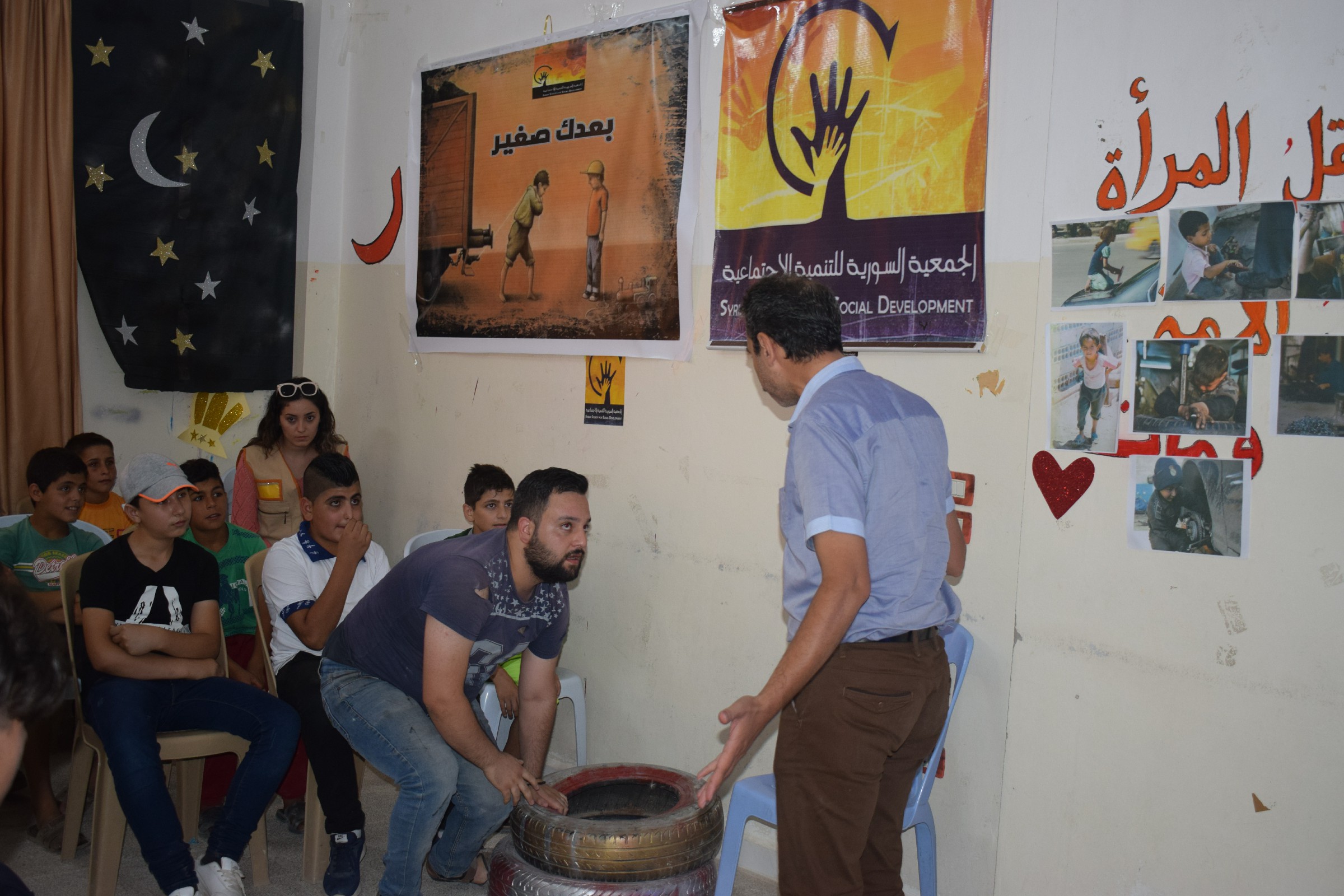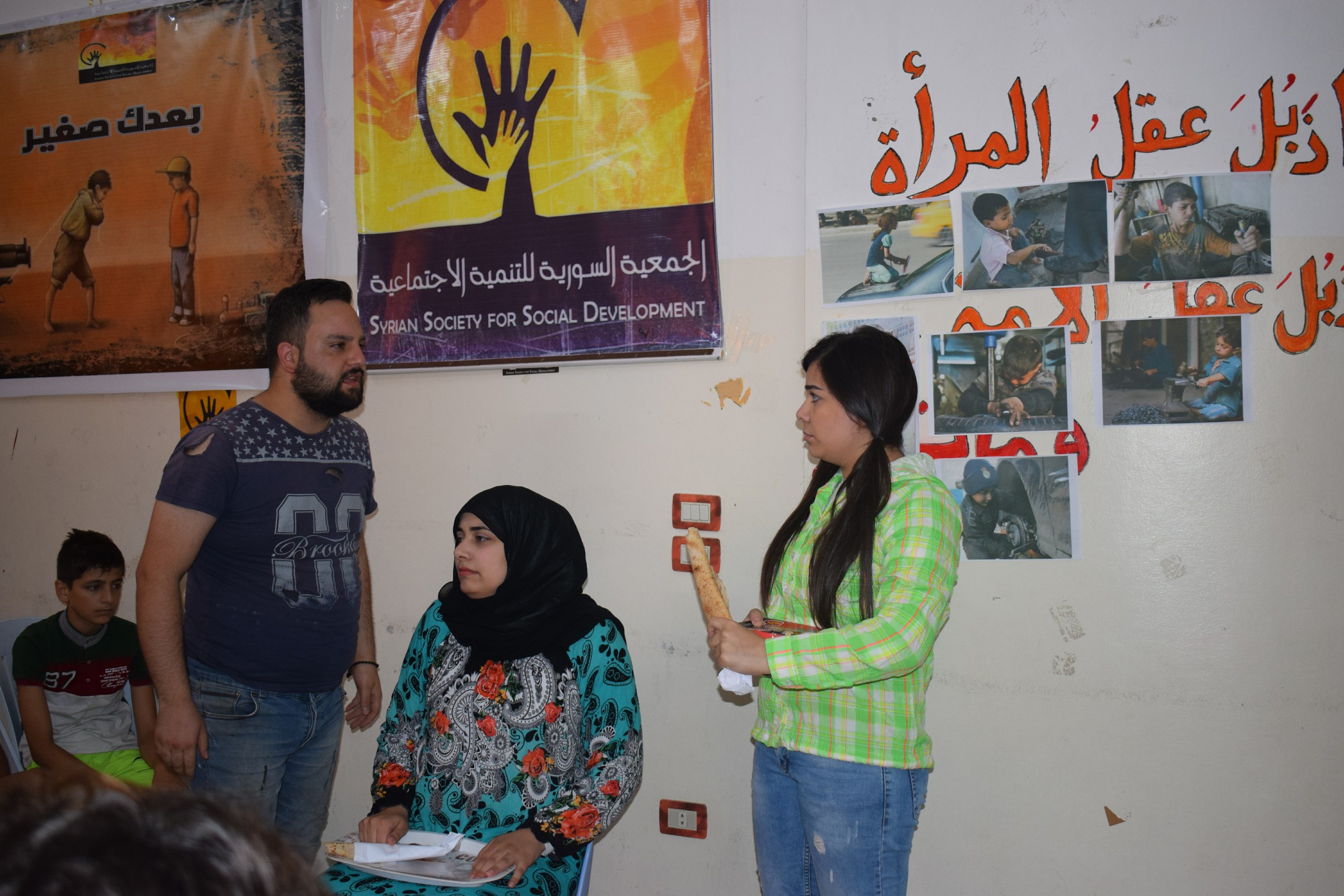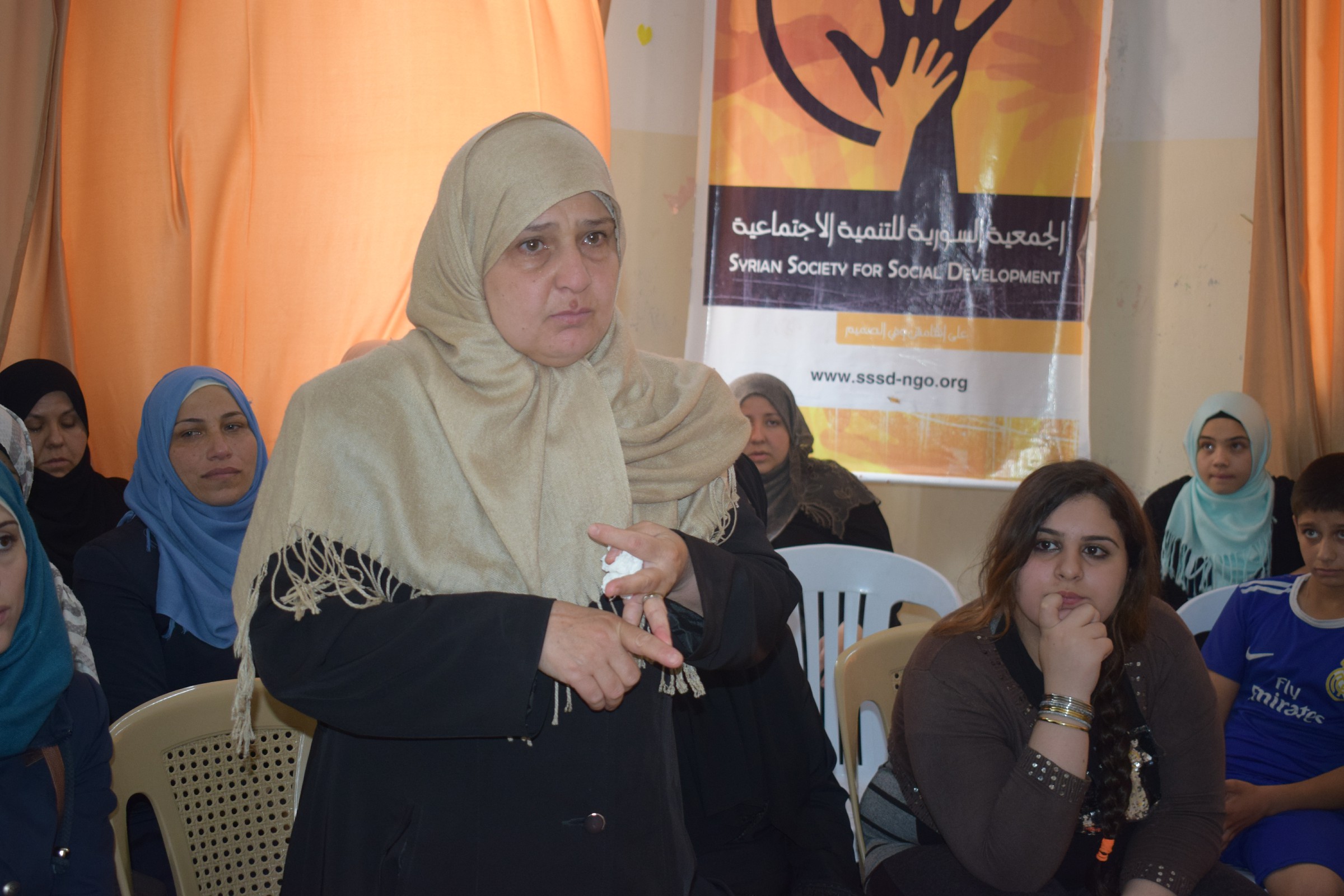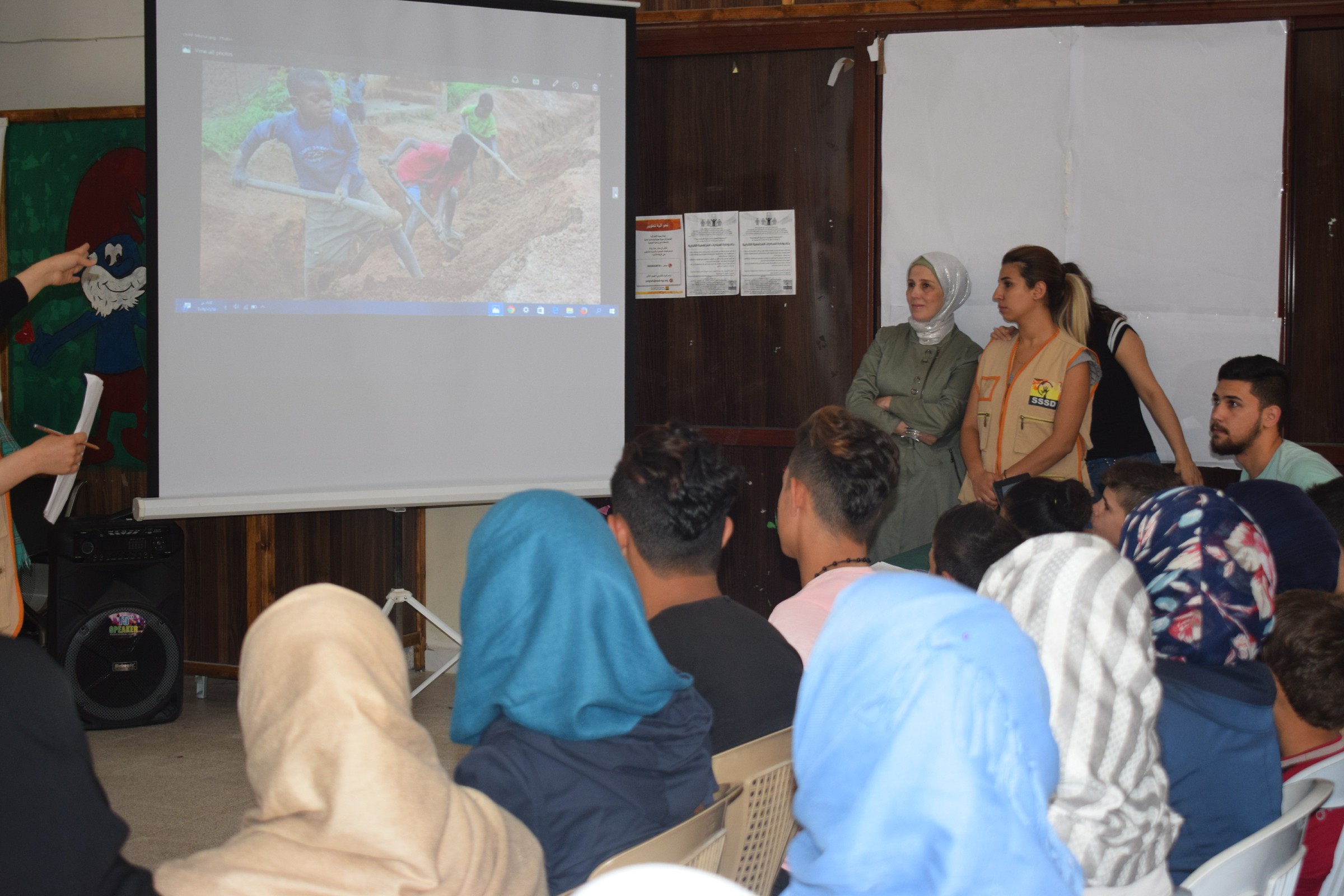Child Protection
Sat, 10/26/2019 - 09:35
“Your School Loves You” Event – Qariet Milh, Salkhad, al-Sweida
Sat, 10/26/2019 - 09:07
Vocational Training: “I’m Up for It!” Event – Qudsaya, Rural Damascus
Sat, 10/26/2019 - 08:55
Interactive Theater: The Taste of Loss - Hassakeh
Thu, 10/24/2019 - 09:36
“Made with Love” Exhibition - Aleppo
Tue, 10/15/2019 - 20:46
Activity: Play with Me – Banias, Tartous
Sun, 10/13/2019 - 13:10
Child Protection Club Initiative on the Return to School - Aqrab, Hama.
Thu, 10/10/2019 - 07:04
Activity: My School is my Second Home – al-Hameh, Rural Damascus
Mon, 10/07/2019 - 10:19


